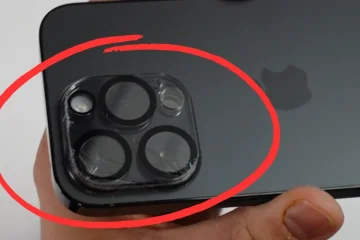Introduction
Electric reels have become a favorite among fishing enthusiasts due to their convenience and efficiency. These battery-powered reels make it easier to reel in big catches, saving time and energy. However, like any electronic device, electric reels can encounter issues, especially with their batteries. Knowing how to troubleshoot these common problems can save you from a frustrating day on the water. This guide will cover the key issues users face with electric reel batteries and provide practical solutions.
Understanding Electric Reel Batteries
Electric reel batteries are the power source for your electric fishing reels. They ensure your reel operates smoothly, providing the strength needed to handle large fish. There are several types of batteries commonly used in electric reels:
- Lithium Batteries: Known for their long lifespan and light weight, lithium batteries are a popular choice for many anglers.
- Deep Cycle Batteries: These batteries can provide sustained power over a long period, making them ideal for prolonged fishing trips.
- 12V Batteries: Often used with electric reels, these batteries are reliable and easy to find.
Popular Electric Fishing Reel Brands
Different brands may recommend various types of batteries for optimal performance. Here’s a look at some popular electric fishing reel brands and their battery requirements:
- Daiwa Electric Reels: Daiwa is a well-known brand in the fishing community. Their electric reels often work well with lithium batteries, although some models may require a deep cycle battery. Check the manufacturer’s guidelines to choose the right battery.
For more information on the types of marine batteries and how to choose the right one, you can refer to these resources:
By understanding the types of batteries and selecting the right one for your electric reel, you can ensure a more enjoyable and efficient fishing experience.
Common Issues with Electric Reel Batteries
When it comes to electric fishing reels, a reliable battery is crucial. Yet, even high-quality batteries can run into issues. Here are some common problems users face with electric reel batteries:
- Low Power: Your electric reel may not run as long as it should.
- Not Charging: Sometimes, the battery may refuse to charge.
- Short Battery Life: The battery doesn’t hold a charge for as long as it used to.
- Voltage Drops: Your reel might lose power or shut down unexpectedly.
- Capacity Loss: Over time, batteries can lose their ability to hold a full charge.
Understanding these issues is the first step in troubleshooting and ensuring your electric fishing reel performs at its best. For further reading, you can check out this guide by Battery Stuff.
Troubleshooting Battery Not Charging
If your electric reel battery isn’t charging, follow these steps to diagnose and fix the problem:
- Check the Charger:
- Ensure it is plugged in properly.
- Look for any visible damage to the charger or cables.
- Test the charger with a multimeter to confirm it is delivering the correct voltage.
- Inspect the Connections:
- Verify that all connections are secure and clean.
- Corroded or loose connections can prevent proper charging.
- Test the Battery:
- Use a multimeter to check the battery’s voltage.
- Compare the reading with the manufacturer’s specifications to determine if the battery is healthy.
- If the voltage is significantly lower than expected, the battery may be faulty.
- Try Another Charger:
- If you have a spare charger, use it to see if the problem persists.
- This helps determine if the issue lies with the original charger.
- Assess the Battery Health:
- Older batteries may lose their ability to charge effectively.
- Consider replacing the battery if it is several years old and shows signs of wear.
For a detailed guide on fixing rechargeable batteries, see this battery lifespan guide.
By following these steps, you can identify and resolve issues preventing your battery from charging, ensuring your electric fishing reel is ready for your next adventure.
Addressing Low Battery Power
Electric reel batteries can sometimes deliver low power, affecting your fishing experience. Here are some possible reasons and solutions to ensure your battery stays in optimal condition.
Possible Reasons for Low Battery Power
- Poor Maintenance: Lack of regular upkeep can reduce battery efficiency.
- Extreme Temperatures: Both high and low temperatures can negatively impact battery performance.
- Battery Age: Older batteries naturally lose capacity over time.
- Low State of Charge: Insufficient charging can lead to reduced power.
How to Test and Maintain Your Battery
- Proper Charging:
- Follow Manufacturer Guidelines: Always charge your battery according to the manufacturer’s instructions.
- Avoid Overcharging: Overcharging can damage the battery and shorten its lifespan.
- Maintenance Routines:
- Clean Terminals: Keep battery terminals clean and free from corrosion.
- Storage: Ensure the battery is stored in a cool, dry place, fully charged if kept for extended periods.
Extending Battery Life
Proper practices can significantly enhance the lifespan and performance of your electric fishing reel battery. Here are some methods and potential upgrades to consider.
Practices for Extending Battery Life
- Correct Charging Cycles:
- Charge the battery fully but avoid overcharging.
- Use a dedicated charger designed for your battery type.
- Regular Maintenance:
- Follow the maintenance routines discussed in the “Addressing Low Battery Power” section.
When to Upgrade or Replace Your Battery
- Decreased Performance: If your battery no longer holds a charge well, consider replacing it.
- Frequent Charging: If you need to charge your battery more often than before, it may be time for an upgrade.
- Visible Damage: Damaged or leaking batteries should be replaced immediately.
Benefits of a Lithium Battery
- Longer Lifespan:
- Lithium batteries can last significantly longer than their lead-acid counterparts.
- Better Performance in Cold Weather:
- Lithium batteries maintain higher performance levels in colder conditions.
- Reduced Weight:
- They are lighter, making them easier to handle and install.
By following these guidelines and considering potential upgrades, you can ensure your electric reel battery provides optimal performance and longevity.
Summary and Solutions Recap
Electric reel batteries are crucial for fishing enthusiasts, but they often encounter issues that can trip up even the most experienced anglers. Here’s a quick recap of the key troubleshooting steps and maintenance tips covered in this guide:
- Understanding Electric Reel Batteries: Knowing the role and types of electric fishing reel batteries helps in selecting the right one.
- Common Issues:
- Low power
- Battery not charging
- Short battery life
- Voltage drops and capacity loss
- Troubleshooting Battery Not Charging:
- Check the charger and connections
- Test the battery with a multimeter
- Addressing Low Battery Power:
- Assess for poor maintenance or extreme temperatures
- Maintain the battery with periodic testing and proper storage
- Extending Battery Life:
- Adopt proper charging cycles
- Consider upgrading to a lithium battery for better performance and lifespan
By following these steps, you can ensure that your electric fishing reel battery performs optimally and lasts longer. Proper care and timely troubleshooting can significantly enhance your fishing experience.
Ready to upgrade or maintain your electric fishing reel battery? Check out the client’s range of electric fishing reels and batteries for top-notch equipment that will make your next fishing adventure even more enjoyable.
Read Next: How long will a 500w eBike battery last?



